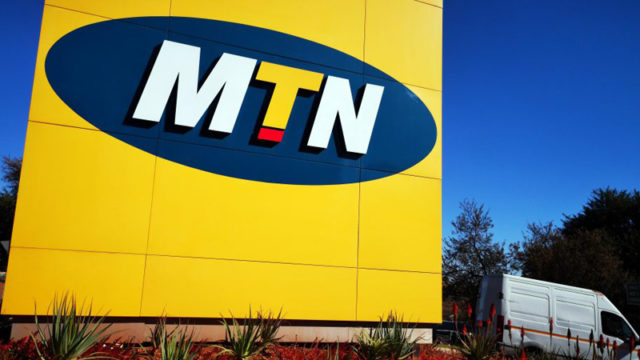Despite the holiday-shortened week, the Nigerian equities market last week extended its positive momentum, closing higher in all four trading sessions and kicking off the month of June on a strong note.
Specifically, the All-Share Index advanced by 2.57% w/w to 114,616.75 points, driven by buying interests in MTNN (+14.0%), DANGCEM (+2.3%), FIRSTHOLDCO (+17.6%), OANDO (+25.8%) and GTCO (+4.6%).
As a result, investors gained N1.812 trillion as the market capitalisation rose to N72.275 trillion on Thursday, up from N70 463 trillion recorded at the week ended Friday May 30, 2025, even as the year-to-date returns settled higher at +11.3%.
Meanwhile, trading volume and value declined by 15.3% and 36.1% w/w, respectively, mostly reflecting the holiday-shortened week, as a total of 3.214 billion shares worth N76.348 billion in 64,156 deals was traded during week under review by investors on the floor of the Exchange, in contrast to a total of 3.794 billion shares valued at N119.394 billion that exchanged hands the previous week in 89,636 deals.
The Financial Services (measured by volume) led the activity chart with 2.313 billion shares valued at N52.241 billion traded in 27,326 deals; thus contributing 71.96% and 68.43% to the total equity turnover volume and value respectively. The ICT industry followed with 301.996 million shares worth N5.026 billion in 4,137 deals. Third place was the Consumer Goods Industry, with a turnover of 144.538 million shares worth N5.632 billion in 8,093 deals.
Trading in the top three equities namely Fidelity Bank Plc, Legend Internet Plc and Guaranty Trust Holding Company Plc (measured by volume) accounted for 1.545 billion shares worth N34.446 billion in 4,939 deals, contributing 48.06% and 45.12% to the total equity turnover volume and value respectively.
The overnight rate expanded by 1bp w/w to 27.0%, as debits for the OMO auction (N1.51 trillion) subdued system liquidity.
Accordingly, system liquidity deteriorated, albeit remaining positive, settling at a net long position of N628.90 billion (compared to a net long position of N1.88 trillion in the previous week).
The Treasury bills secondary market was quiet, albeit with a bullish undertone, driven by market participants looking to fill unmet bids from the PMA. Consequently, the average yield across all instruments declined by 3bps to 23.0%.
Across the market segments, the average yield declined by 4bps to 20.7% in the NTB segment, while it advanced by 10bps to 25.8% in the OMO segment.
At Wednesday’s NTB auction, the DMO offered bills worth N450.00 billion – N50.00 billion for the 91D, N100.00 billion for the 182D, and N300.00 billion for the 364D bills. Total subscription levels settled higher at N1.31 trillion (previous auction: N1.17 trillion), indicating a bid-to-offer ratio of 2.9x (previous auction: 2.3x).
The auction closed with the DMO allotting exactly the total amount offered – N50.00 billion for the 91D, N30.03 billion for the 182D, and N369.97 billion for the 364D papers – at respective stop rates of 17.98% (previous: 18.00%), 18.50% (unchanged) and 19.35% (previous: 19.56%). The CBN conducted an OMO auction on Monday (2 June), offering instruments worth NGN600.00 billion – N300.00 billion for the 106D and N300.00 billion for the 232D.
The auction was met with strong demand with total subscription settling at N1.53 billion (bid-to-offer: 2.5x), with the CBN allotting N1.51 trillion – N204.87 billion for the 106D and N1.31 trillion for the 232D at respective stop rates of 24.20% and 24.64%.
Similarly, the FGN bond secondary market was quiet, as the average yield closed flat at 18.9%. Across the benchmark curve, the average yield increased at the short (+4bps) end, driven by selloffs of the JAN-2026 (+14bps) bond, while it decreased at the mid (-9bps) and long (-6bps) segments following demand for the APR-2032 (-32bps) and MAR-2036 (-29bps) bonds, respectively.
Global Markets
Global equities maintained a bullish trajectory this week as investors digested a mix of economic data and tracked key policy signals across major markets. At the time of writing, US equities (DJIA: +0.4%; S&P 500: +1.0%), were on pace to end the week higher, buoyed by stronger-than-expected job openings data (JOLTS) and a rally in technology stocks. These gains offset concerns stemming from weaker ISM manufacturing and services PMI prints, as well as a softer pace of private-sector hiring.
Elsewhere, European equities (STOXX Europe 600: +0.5%; FTSE 100: +0.3%) traded higher following a surprise moderation in Eurozone inflation, which came in below the market and ECB’s 2.0% target. The downside inflation surprise reinforced expectations for a 25 bps rate cut by the European Central Bank at its next policy meeting (today) and increased the probability of further easing later in the year.
Meanwhile, Asian markets were mixed as Chinese equities (SSE: +1.1%) advanced, supported by gains in technology stocks and positive spillover from Wall Street, while Japanese equities (Nikkei 225: -1.1%) declined, weighed down by hawkish commentary from the Bank of Japan’s Governor and renewed global trade tensions after the US announced a doubling of tariffs on steel and aluminum imports to 50.0%.
Lastly, the Emerging and Frontier market indices (MSCI EM: +1.3%; MSCI FM: +2.1%) closed higher, supported by gains in China (+1.1%) and Romania (+3.0%), respectively.

